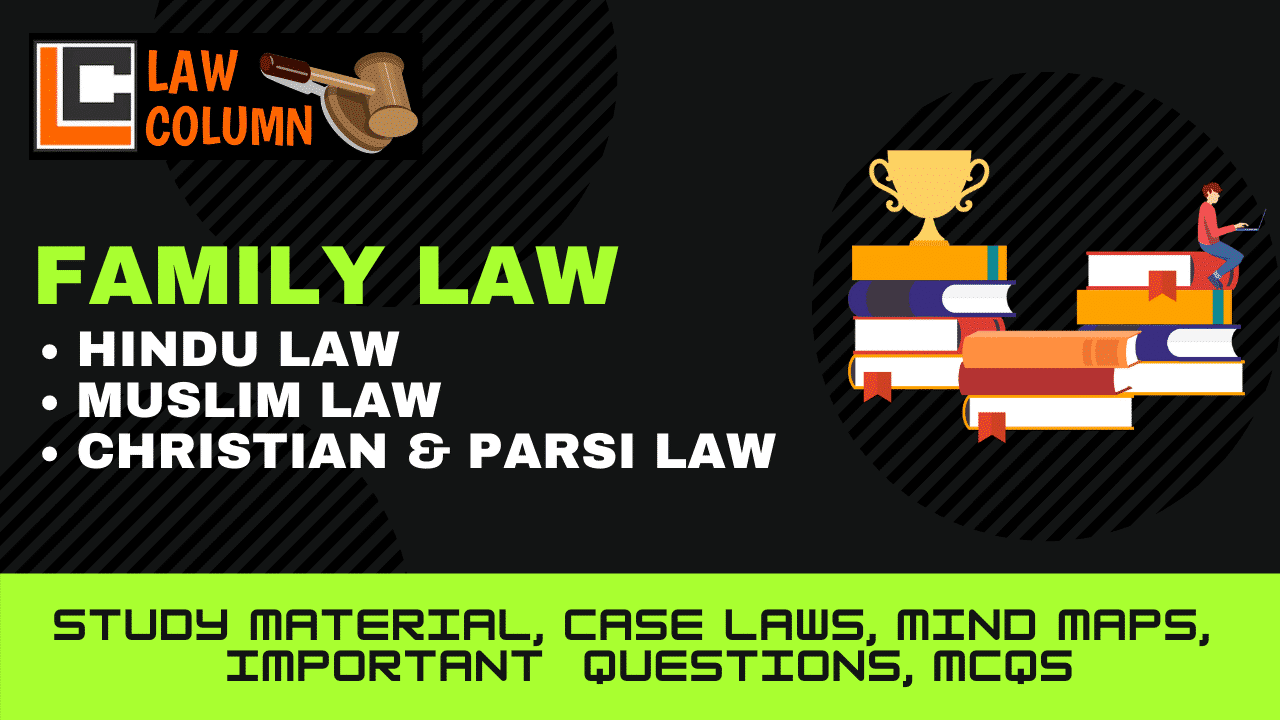Table of Contents
Void Marriage or Batil Nikah under Muslim Law
INTRODUCTION
- Basically, Muslim law is divine law as opposed to man made law which are passed by legislatures.
- unlike Hindus which believe in plurality of gods Musilm believes to follow one godess ‘allah
- Muslims believe that Quran is the only revealed book of Allah.
- Mohammed was the last prophet sent by God (Allah) who received wahi during the jahila period ( period of harshness, sadness , conflicts all over between different tribes)
- Muslims acknowledge religious preachers and leaders after Mohammed but they were not considered prophets.
- Islamic society was not divided on the basis of castes like Hindu Society and everyone was considered as an equal in the eyes of God.
Marriage (NIKAH)
Under Muslim law, Marriage is considered as a contract with conditions to be fulfilled for a valid marriage .In India , Marriage is considered as civil contract. Unlike hindu law,There are no such ceremonies to be performed instead a marriage must fulfilled or include the following conditions and essentials of marriage:-
The parties must have capacity to contract marriage
- he/she is a Muslim
- A muslim should be of sound mind
- Has attained the age of Puberty
- Persons who are not of sound mind or who have not attained puberty can be married by their guardians.
- A woman cannot marry any man who is not a Muslim under Muslim law
- As per sunni ,a Sunni mohammedan can marry a non Muslim women if she is Kitabia
(If the religion is revealed through a divine book then it is called Kitabia, Hinduism is not kitabia)
- As per Shia mohammedan can not marry a non Muslim women even if she is a Kitabia.
- If the other person converts to Islam before marriage then there is no bar
There should be a proposal(known as Ijabin muslim law)
- There should be two male witnesses OR one male and two female witnesses
- Should be without ambiguities and should be made by the parties themselves or by other on their behalf.
- Proposal and acceptance should be expressed in one meeting
- A assurance to marry in future does not constitute a proposal.
There should acceptance(known as Quabul) of proposal
- There should be two male witnesses OR one male and two female witnesses
- Should be without ambiguities and should be made by the parties themselves or by other on their behalf.
- Proposal and acceptance should be expressed in one meeting
- A assurance to marry in future does not constitute a proposal.
There should be no impediments to the marriage.
Classifications of Marriage under muslim law:-
As per shia :-
- Sahih
- Batil
As per sunni:-
- Fasid
- Sahih
- Batil
(As stated above that Prophet Mohammed ,who was the last prophet in muslims was died at age 63 without leaving an heir to the throne. So to decide who would become his successor ,
Two groups were formed which were on political rather than religious basis. First, on religious basis called shias and another on the basis of election called sunni)
Generally there are three types of marriages:-
-Sahih Marriage {VALID MARRIAGE}
-Batil Marriage {VOID-AB-INITIO MARRIAGE}
-Fasid Marriage {Irregular marriage}
-
Batil Marriage – [A void marriage]
When a marriage violates the prescribed condition of a valid marriage or unlawful from its beginning then it is considered as void marriage or Batil marriage. The batil marriage is considered to be void ab initio as it is declared as void from Its origin and does not create any legal obligations. The offspring of void marriage is said to be illegitimate
These marriages are the outcomes of;-
- Marriage through forced consent,
- Plurality of husband
- Prohibited on the grounds of consanguinity, affinity, fosterage
I. Plurality of husband ;-
A married woman cannot contract another marriage while her husband is alive and the marriage is subsisting. Such marriage is void.
II. Prohibited on the grounds consanguinity[ blood relations]
The bar of consanguinity renders a marriage void.
The following are we prohibited relationships of consanguinity, viz., a man cannot marry his:
(a) ascendants, e.g., mother or grandmother, how high soever;
(b) descendants, e.g., daughter or grand-daughter, how howsoever;
(c) his sister, whether full, consanguine or uterine;
(d) his niece or great niece, how howsoever;
(e) his aunt or great aunt, how high soever, whether paternal or maternal.
III. Prohibited on the grounds Affinity [ -in law relations]
Marriage is also prohibited on grounds of affinity.
Thus, a man cannot marry:
(a) his wife’s mother, or grandmother, how high soever;
(b) his wife’s daughter or grand-daughter, how lowsoever, if his marriage with his wife is consummated;
(c) his father’s wife or any other ascendant’s wife, and
(d) his sons, or any other lineal descendant’s wife.
IV. Prohibited on the grounds Fosterage [ due to sucking of milk]
Fosterage is another impediment to a valid Muslim marriage.it means if a child was born and feeded by any other women called foster then marriage to her also said to be a bar and void marriage. it includes foster mother, foster sister, Foster sister’s mother etc.
Author: Tanveen Kaur,
Chandigarh university/2 year/law student

